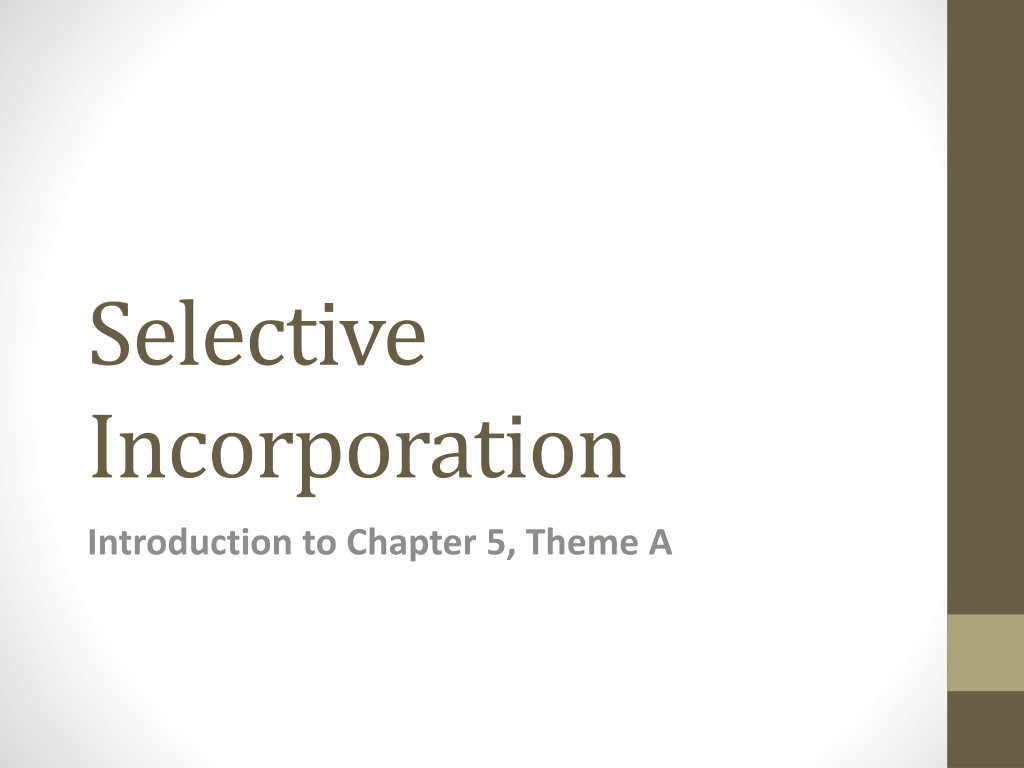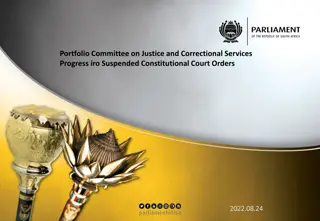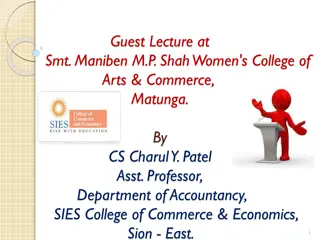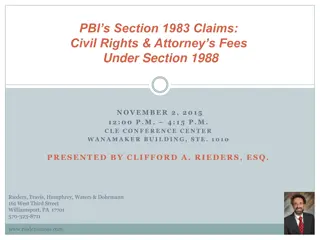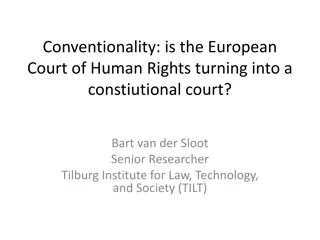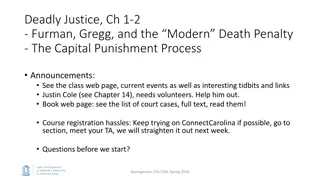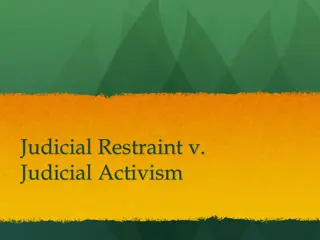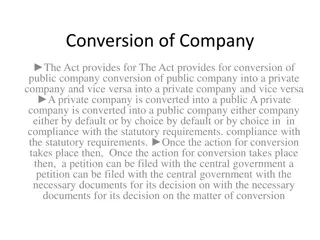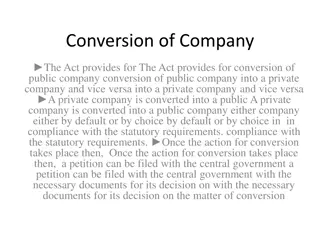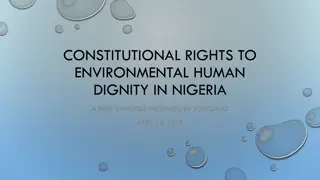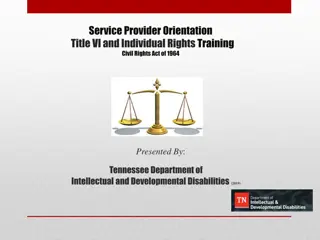Understanding Selective Incorporation: Evolution of Constitutional Rights
Explore the evolution of constitutional rights through the lens of selective incorporation, focusing on the 14th Amendment, interpretation of the Bill of Rights, and landmark Supreme Court cases. Delve into how the scope of fundamental rights expanded from a federal to state level, shaping the legal landscape in the U.S.
Download Presentation

Please find below an Image/Link to download the presentation.
The content on the website is provided AS IS for your information and personal use only. It may not be sold, licensed, or shared on other websites without obtaining consent from the author. Download presentation by click this link. If you encounter any issues during the download, it is possible that the publisher has removed the file from their server.
E N D
Presentation Transcript
Selective Incorporation Introduction to Chapter 5, Theme A
The 14thAmendment is ALWAYS a good answer! Review: How does the 14thAmendment relate to immigration? How does the 14thAmendment relate to basic rights guaranteed in the BOR? Our focus today: Discuss the handout To whom did the BOR originally pertain? How did that change? Define and explain selective incorporation
To Whom did the BOR originally pertain? What was the original intent of the BOR as proposed in 1788? Would the document have had the same impact if the first word was not Congress? Even the strong Federalist, John Marshall agreed that the BOR only pertained to the federal government. Discuss Barron v. Baltimore
Interpreting the 14thAmendment Why was the privileges and immunities clause of the 14thAmendment rendered useless by the Court in the Slaughterhouse cases of 1873? What did the Court interpret as privileges and immunities?
Change in the Federal Mindset What issue was before the Court in Gitlow v. New York in 1925? Frame the issue with the times What 2 rights were explicitly applied to states as fundamental? The 1stAmendment protections cannot be denied by the states. The due process clause of the 14thAmendment applies the rights of free speech and press to the states. Incorporation meant that states cannot deny people life, liberty or property without due process of law.
Total vs. Selective Incorporation? Liberty=BOR view caused issues So why not decide that all rights in the BOR apply to the states? Burdensome? Example? Illogical? Example? How did Palko v. Connecticut in 1937 settle the issue of selective incorporation? Which rights apply and which do not? What standard has been applied to distinguish the difference in the rights in the BOR that are incorporated and those that are not?
1stAmendment Cases in Incorporation History Before 1953: Gitlow v. NY Speech DeJonge v. Oregon Assembly Near v. MN Prior Restraint Cantwell v. CT Free Exercise clause Everson v. BOE Establishment clause Detail Case Discuss importance
Warren Court & Incorporation We will do much more with criminal due process later in the chapter. It is enough to know for now that nearly every criminal right in the BOR was applied to the states by the Warren Court (1953-1969).
So...Why is the 14thAmendment always a good answer? (2 of 3 reasons) 1. Nationalized citizenship requirements & Overturned the Dred Scott decision. 2. Contains the Due Process clause. Interpretation of this clause has led to Selective Incorporation of BOR.
Whats Due When! Movies due uploaded to www.youtube.com and link sent via e-mail to me, no later than 5:00 tomorrow! Read pp. 106-113 and cases on handout, Take notes on other cases and interpretations as well as the types of protected versus unprotected expression. Due Thursday! Thursday is a split day. We will begin promptly at 8:47 a.m.!
